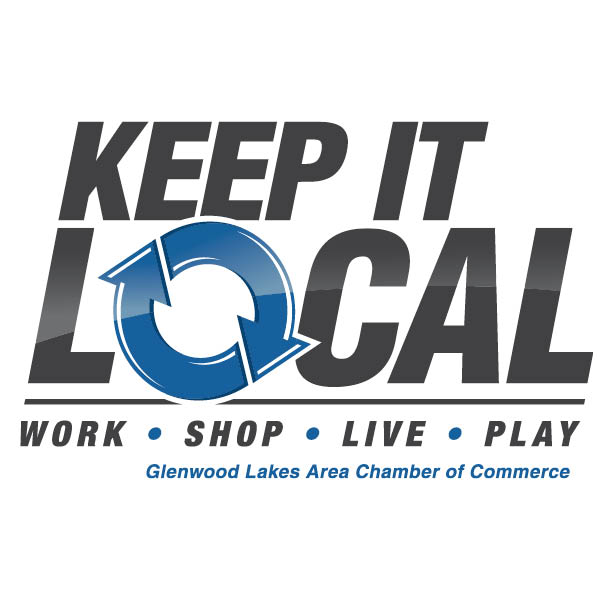Someplace Safe provides resources for victims of abuse
News | Published on June 12, 2023 at 2:15pm CDT
Someplace Safe is a nonprofit agency offering a myriad of services to victims and survivors of crime, families and communities in a nine-county region in West Central Minnesota. Someplace Safe provides resources to nearly 4,000 unduplicated local victims of crime throughout Big Stone, Douglas, Grant, Otter Tail, Pope Stevens, Traverse, Wadena and Wilkin counties.
“Often times, folks come into my office and are still unsure if what they are experiencing is actually abuse and as a community we need to speak up and talk about domestic violence. Name it. It’s intimate partner violence. It’s not a bad day, or he drank too much or I just never do anything right. It is abuse inflicted by someone who is supposed to love you and keep you safe. You deserve physical, sexual, financial and emotional safety. We all deserve a happy, healthy and safe home where we are treated as human beings and loved for who we are,” said Jenna Kettner of Someplace Safe Pope County.
Domestic abuse, also called domestic violence or intimate partner violence, can be defined as a pattern of behavior in any relationship that is used to gain or maintain power and control over an intimate partner. Abuse is physical, sexual, emotional, economic or psychological actions or threats of actions that influence another person. This includes any behaviors that frighten, intimidate, terrorize, manipulate, hurt, humiliate, blame, injure or wound someone. Domestic abuse can happen to anyone of any race, age, sexual orientation, religion or gender. It can occur within a range of relationships including couples who are married, living together or dating. Domestic violence affects people of all socioeconomic backgrounds and education levels.
“Coming into my office to chat with me is completely on your terms. We do not exist to judge your situation or your past and we do not tell you what to do. We are here to listen, believe and support you as you make the decisions that are best for you,” Kettner added. “When I meet with clients, I want them to feel safe and comfortable. I want to provide hope, support, safety and resources to assist them in reaching their goals. Many of the clients I work with, I maintain a strong relationship with for years and they know they can always come back for help and support when they need it. The best part of my job is seeing clients succeed and believe in themselves again.”
Incidents of domestic violence are rarely isolated and usually escalate in frequency and severity. Domestic abuse may culminate in serious physical injury or death.
Are You Being Abused?
The following questions should be considered.
Does your partner…
•Embarrass or make fun of you in front of your friends or family?
•Put down your accomplishments?
•Make you feel like you are unable to make decisions?
•Use intimidation or threats to gain compliance?
•Tell you that you are nothing without them?
•Treat you roughly—grab, push, pinch, shove or hit you?
•Call you several times a night or show up to make sure you are where you said you would be?
•Use drugs or alcohol as an excuse for saying hurtful things or abusing you?
•Blame you for how they feel or act?
•Pressure you sexually for things you aren’t ready for.
•Make you feel like there is no way out of the relationship?
•Prevent you from doing things you want – like spending time with friends or family?
•Try to keep you from leaving after a fight or leave you somewhere after a fight to teach you a lesson?
Do you…
•Sometimes feel scared of how your partner may behave.
•Constantly make excuses to other people for your partner’s behavior.
•Believe that you can help your partner change if only you changed something about yourself?
•Try not to do anything that would cause conflict or make your partner angry?
•Always do what your partner wants you to do instead of what you want?
•Stay with your partner because you are afraid of what your partner would do if you broke up?
If any of these things are happening in your relationship, talk to someone. Without help, the abuse will continue. Making that first call to seek help is a courageous step.
Always remember…
•No one deserves to be abused. The abuse is not your fault. You are not alone.
•Don’t worry if you do not speak the local language. Someplace Safe can get you help in many languages.
Physical and sexual assaults, or threats to commit them, are the most apparent forms of domestic abuse and violence and are usually the actions that allow others to become aware of the problem. However, regular use of other abusive behaviors by the abuser, when reinforced by one or more acts of physical violence, make up a larger system of abuse. Although physical assaults may occur only once or occasionally, they instill the fear of future violent attacks and allow the abuser to take control of the victim’s life and circumstances.
Emotional abuse includes undermining a person’s sense of self-worth through constant criticism, belittling one’s abilities, name-calling or other verbal abuse, damaging a partner’s relationship with the children, or not letting a partner see friends and family. You may be in an emotionally abusive relationship if your partner:
•Calls you names, insults you or continually criticizes you.
•Does not trust you and acts in a jealous or possessive manner.
•Tries to isolate you from family or friends.
•Monitors where you go, whom you call and with whom you spend your time.
•Does not want you to work.
•Controls finances or refuses to share money.
•Punishes you by withholding affection.
•Expects you to ask permission.
•Threatens to hurt you, the children, your family or your pets.
•Humiliates you in any way.
Psychological abuse involves causing fear by intimidation, threatening physical harm to self, partner or children, destruction of pets and property, mind games, or forcing isolation from friends, family, school and/or work.
Financial or economic abuse involves making or attempting to make a person financially dependent by maintaining total control over financial resources, withholding access to money and/or forbidding attendance at school or employment.
Physical abuse involves hurting or trying to hurt a partner by hitting, kicking, burning, grabbing, pinching, shoving, slapping, hair-pulling, biting, denying medical care or forcing alcohol and/or drug use, or using other physical force.
Are You An Abuser?
•If you recognize that you are mistreating your partner, there may be resources in the community to assist you end the abuse.
•Understand that the domestic abuse is not only harmful physically, but mentally. You may be subject to criminal prosecution under the law that is applicable.
Someplace Safe offers resources to those who are victims of crimes. They include a 24-hour crisis line that can be reached seven days a week at (800)974-3359. The line is staffed with individuals who are trained to listen, offer information and make referrals to cooperating emergency services if needed. They also provide advocacy services, empowerment groups, short term emergency placement services, parenting time centers and thrift stores.
The Pope County Someplace Safe center is located at 625 Lakeshore Drive, Suite B140 in Glenwood. The phone to the office is (320)634-3482. The Someplace Safe website is also a great place to find information and resources and can be found at someplacesafe.info.




